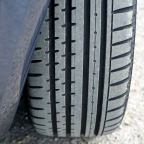
A Guide to understanding car records and history
When buying or selling a car, one of the most important steps is to review its records and history. These details help you understand the background of any vehicle, whether it’s had multiple owners, undergone important repairs, or experienced accidents. Knowing how to check vehicle details in the UK can give you peace of mind and provide valuable insight. Understanding the data behind a car's past is essential for making informed decisions and avoiding costly surprises.
What are car records and why do they matter?
Car records encompass all the essential information about a vehicle throughout its lifespan. This can range from initial registration details to periodic maintenance and accident history. Reliable records reveal how well a car has been looked after and can indicate future reliability. Often, these records will also include previous MOT test results, giving a glimpse into prior issues or advisory notes that may affect future roadworthiness.
Assessing a car’s history matters for both safety and financial reasons. A vehicle with a full and transparent service history is typically more valuable and trustworthy. In contrast, gaps in records may point to missed services, unreported accidents, or potential odometer fraud. By asking for comprehensive documentation and reviewing records closely, buyers can avoid many common pitfalls.
Key elements included in a car’s history report
A standard vehicle history report in the UK will cover several critical areas. Registration history details previous owners, how many times the car has changed hands, and whether it has ever been reported stolen. It’s also important to check whether the vehicle was ever written off or categorised due to accident damage, as this can affect insurance and safety. Reviewing the mileage records helps spot inconsistencies or rolling back of the odometer, an illegal practice that can misrepresent the true usage of the vehicle.
Maintenance and repair records are also vital. They indicate how promptly previous owners responded to needed repairs and regular servicing. Proof of scheduled servicing, such as oil changes and timing belt replacements, is a positive sign that the vehicle was cared for responsively. Additionally, MOT test history reveals not only whether the car consistently passed checks but also any recurring faults. These details all contribute to understanding the vehicle’s value and reliability.
How to obtain and interpret a vehicle history check
There are various ways to access a car’s records in the UK. Buyers often request information directly from the seller, especially for a full service history and MOT certificates. For more assurance, you can make use of online platforms that aggregate vehicle data based on registration numbers. These reports compile details from government databases and insurance companies to present a full overview of the vehicle’s background.
When interpreting a car’s record, look for details such as consistent service stamps, accurate mileage progression, and a clean MOT history. Pay attention to any accident or insurance claims listed, and scrutinise if major repairs were documented. If any information seems incomplete, don’t hesitate to ask the seller for clarifications or additional evidence. Understanding this information ahead of time arms you with knowledge and helps prevent unexpected surprises after purchase.
Common Pitfalls and Red Flags in Car Histories
Unfortunately, not all vehicle records are clear or trustworthy. Unexplained gaps between owners, missing MOT certificates, or discrepancies in mileage are clear warning signs. Always verify the VIN (Vehicle Identification Number) on the car matches all documentation provided, as mismatches could indicate serious issues such as vehicle cloning. Careful review may also reveal if the vehicle has been involved in severe accidents or written off in the past, which can affect its future reliability and safety.
Be cautious with recently imported vehicles, as their history prior to arriving in the UK might be incomplete or harder to verify. Also, avoid cars with unclear service histories, as they may have missed essential maintenance tasks. Being thorough and methodical in your approach to checking vehicle history minimises risks and supports responsible decision-making when it comes to car ownership.













